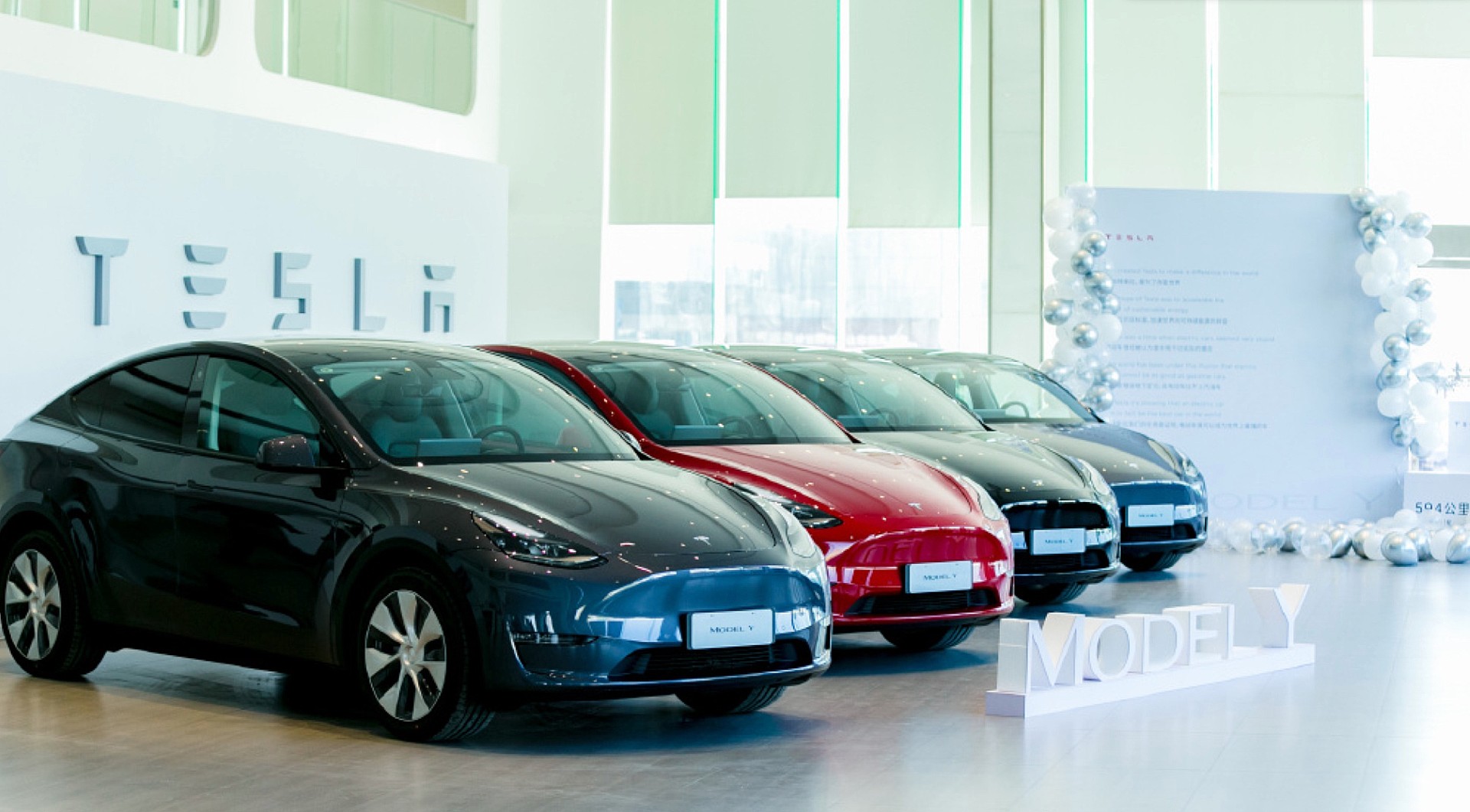
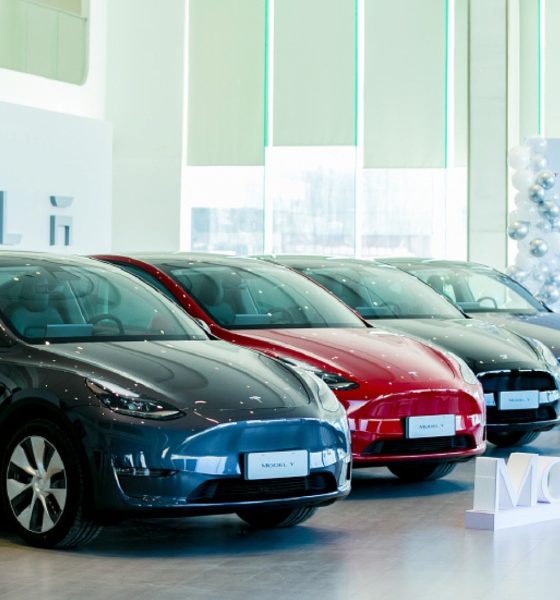
News
Tesla’s Xinjiang Showroom prompts harsh warning and criticism from WH Press Sec
Tesla’s new showroom and store in the region of Xinjiang, China, seemed to get acknowledgment from President Joe Biden’s Press Secretary, Jen Psaki, during a recent press conference. Psaki did not mince words, hinting that public and private companies should oppose China’s human rights abuses.
Earlier this week, Tesla opened a showroom in Xinjiang, a region of China that is often under intense scrutiny due to its human rights abuses. According to Human Rights Watch, a non-governmental, international organization which “defends the rights of people in 100 countries worldwide,” estimates that one million Uyghur Muslims are detained in the region.
On Tuesday, White House Press Secretary Jen Psaki was asked about the Tesla showroom in Xinjiang, according to a video from The Recount. Psaki acknowledged the claims, stating that private sector companies cannot fail to address forced human labor and human rights abuses. Psaki added that companies that fail to do so could “face serious legal, reputational, and customer risk.”
WH Press Sec. Jen Psaki when asked about Tesla’s new showroom in Xinjiang, where China’s government is accused of detaining an estimated 1 million Muslim minority people:
“We’ve been clear about our views on the ongoing genocide and crimes against humanity in Xinjiang.” pic.twitter.com/B7F1uk2kYF
— The Recount (@therecount) January 4, 2022
“I can’t speak to the specific situation of one company. But, as a general matter, we believe the private sector should oppose the PRC’s human rights abuses and genocide in Xinjiang,” Psaki said. “The international community, including the public and private sectors, cannot look the other way when it comes to what is taking place in Xinjiang. As we’ve said before, companies that fail to address forced labor in their supply chains and other human rights abuses face serious legal, reputational, and consumer risk, not only in the United States but in Europe and around the world.”
In December, President Biden signed the Uyghur Forced Labor Prevention act, which bans imports from the Xinjiang region unless companies can prove that their products were not made with forced labor. Human Rights Watch says that China has detained one million Uyghur Muslims, placing them in “re-education” camps where they are abused with beatings, forced labor, medical experiments, and forced abortions. China has denied these allegations, stating that it has not abused the Uyghur people.
I’d love to hear from you! If you have any comments, concerns, or questions, please email me at joey@teslarati.com. You can also reach me on Twitter @KlenderJoey, or if you have news tips, you can email us at tips@teslarati.com.

Elon Musk
Elon Musk confirms SpaceX is not developing a phone
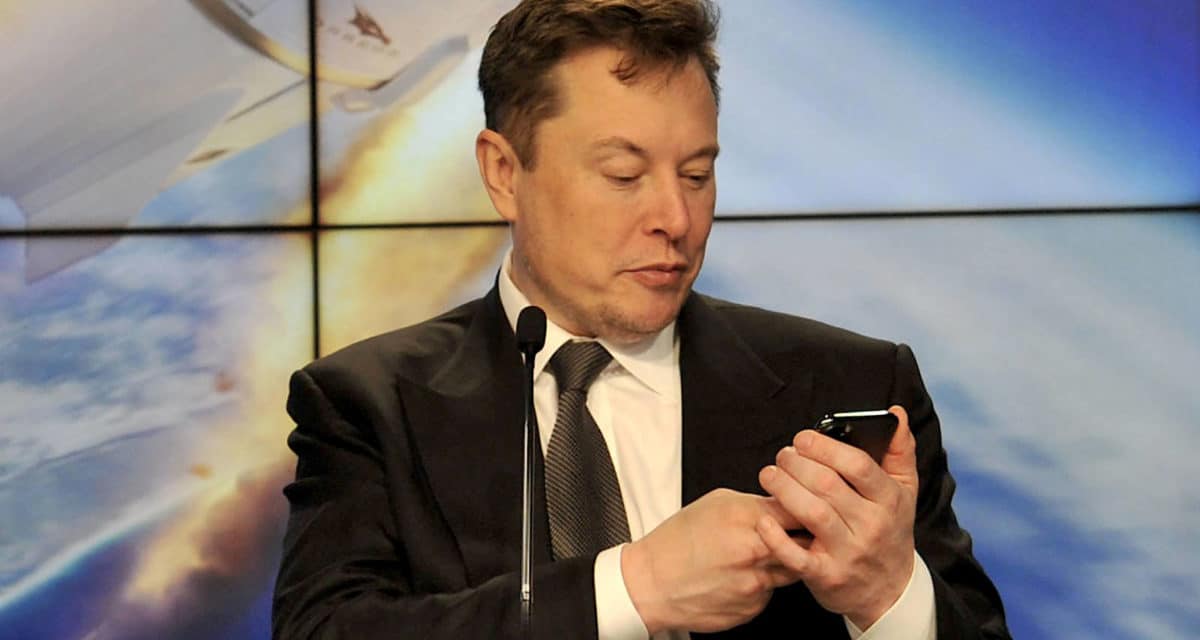
Despite many recent rumors and various reports, Elon Musk confirmed today that SpaceX is not developing a phone based on Starlink, not once, but twice.
Today’s report from Reuters cited people familiar with the matter and stated internal discussions have seen SpaceX executives mulling the idea of building a mobile device that would connect directly to the Starlink satellite constellation.
Musk did state in late January that SpaceX developing a phone was “not out of the question at some point.” However, He also said it would have to be a major difference from current phones, and would be optimized “purely for running max performance/watt neural nets.”
Not out of the question at some point. It would be a very different device than current phones. Optimized purely for running max performance/watt neural nets.
— Elon Musk (@elonmusk) January 30, 2026
While Musk said it was not out of the question “at some point,” that does not mean it is currently a project SpaceX is working on. The CEO reaffirmed this point twice on X this afternoon.
Musk said, “Reuters lies relentlessly,” in one post. In the next, he explicitly stated, “We are not developing a phone.”
Reuters lies relentlessly
— Elon Musk (@elonmusk) February 5, 2026
We are not developing a phone
— Elon Musk (@elonmusk) February 5, 2026
Musk has basically always maintained that SpaceX has too many things going on, denying that a phone would be in the realm of upcoming projects. There are too many things in the works for Musk’s space exploration company, most notably the recent merger with xAI.
SpaceX officially acquires xAI, merging rockets with AI expertise
A Starlink phone would be an excellent idea, especially considering that SpaceX operates 9,500 satellites, serving over 9 million users worldwide. 650 of those satellites are dedicated to the company’s direct-to-device initiative, which provides cellular coverage on a global scale.
Nevertheless, there is the potential that the Starlink phone eventually become a project SpaceX works on. However, it is not currently in the scope of what the company needs to develop, so things are more focused on that as of right now.
News
Tesla adds notable improvement to Dashcam feature
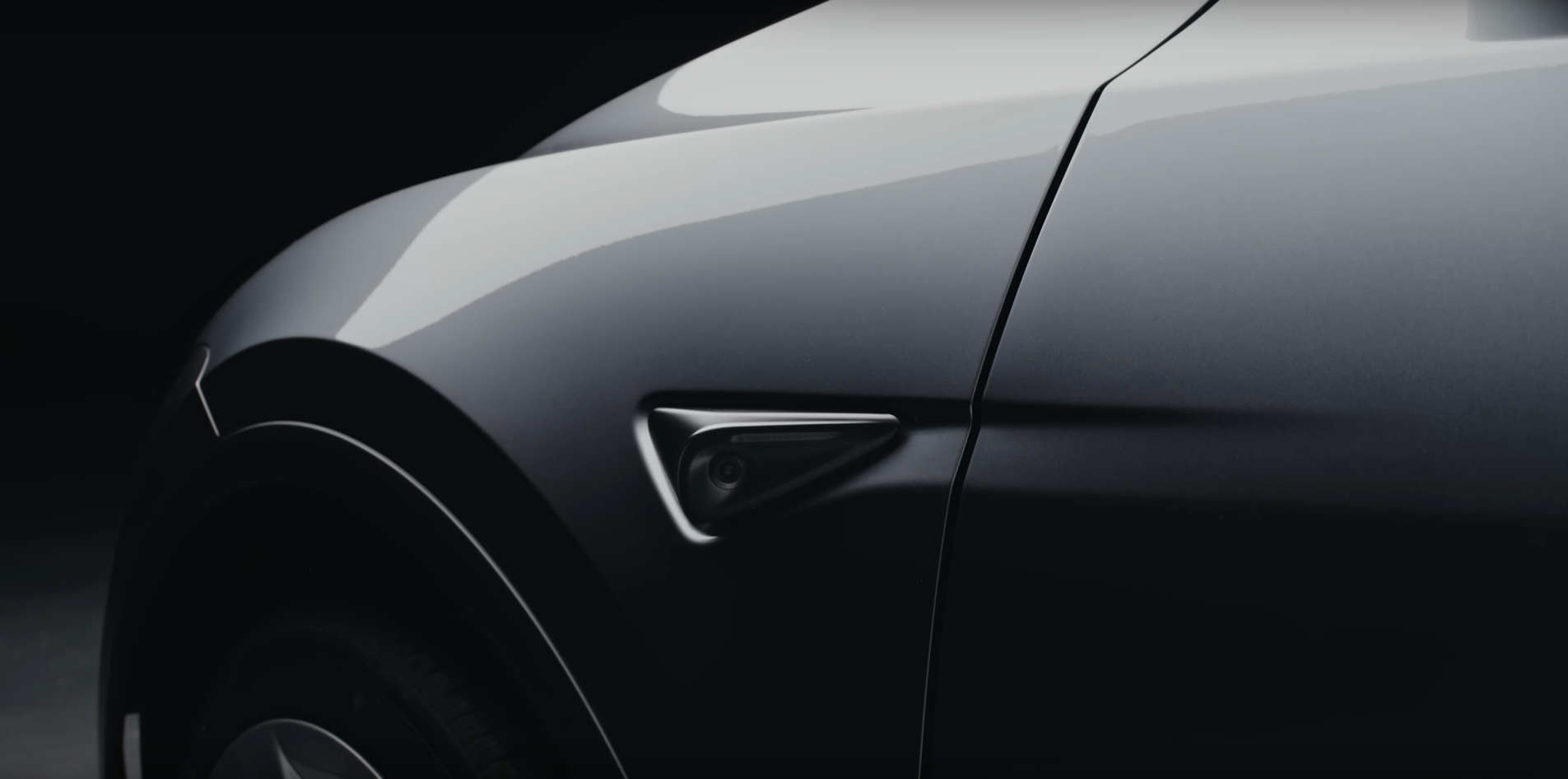
Tesla has added a notable improvement to its Dashcam feature after complaints from owners have pushed the company to make a drastic change.
Perhaps one of the biggest frustrations that Tesla owners have communicated regarding the Dashcam feature is the lack of ability to retain any more than 60 minutes of driving footage before it is overwritten.
It does not matter what size USB jump drive is plugged into the vehicle. 60 minutes is all it will hold until new footage takes over the old. This can cause some issues, especially if you were saving an impressive clip of Full Self-Driving or an incident on the road, which could be lost if new footage was recorded.
This has now been changed, as Tesla has shown in the Release Notes for an upcoming Software Update in China. It will likely expand to the U.S. market in the coming weeks, and was first noticed by NotaTeslaApp.
The release notes state:
“Dashcam Dynamic Recording Duration – The dashcam dynamically adjusts the recording duration based on the available storage capacity of the connected USB drive. For example, with a 128 GB USB drive, the maximum recording duration is approximately 3 hours; with a 1 TB or larger USB drive, it can reach up to 24 hours. This ensures that as much video as possible is retained for review before it gets overwritten.”
Tesla Adds Dynamic Recording
Instead of having a 60-minute cap, the new system will now go off the memory in the USB drive. This means with:
- 128 GB Jump Drive – Up to Three Hours of Rolling Footage
- 1TB Jump Drive – Up to 24 Hours of Rolling Footage
This is dependent on the amount of storage available on the jump drive, meaning that if there are other things saved on it, it will take away from the amount of footage that can be retained.
While the feature is just now making its way to employees in China, it will likely be at least several weeks before it makes its way to the U.S., but owners should definitely expect it in the coming months.
It will be a welcome feature, especially as there will now be more customization to the number of clips and their duration that can be stored.
Elon Musk
Will Tesla join the fold? Predicting a triple merger with SpaceX and xAI
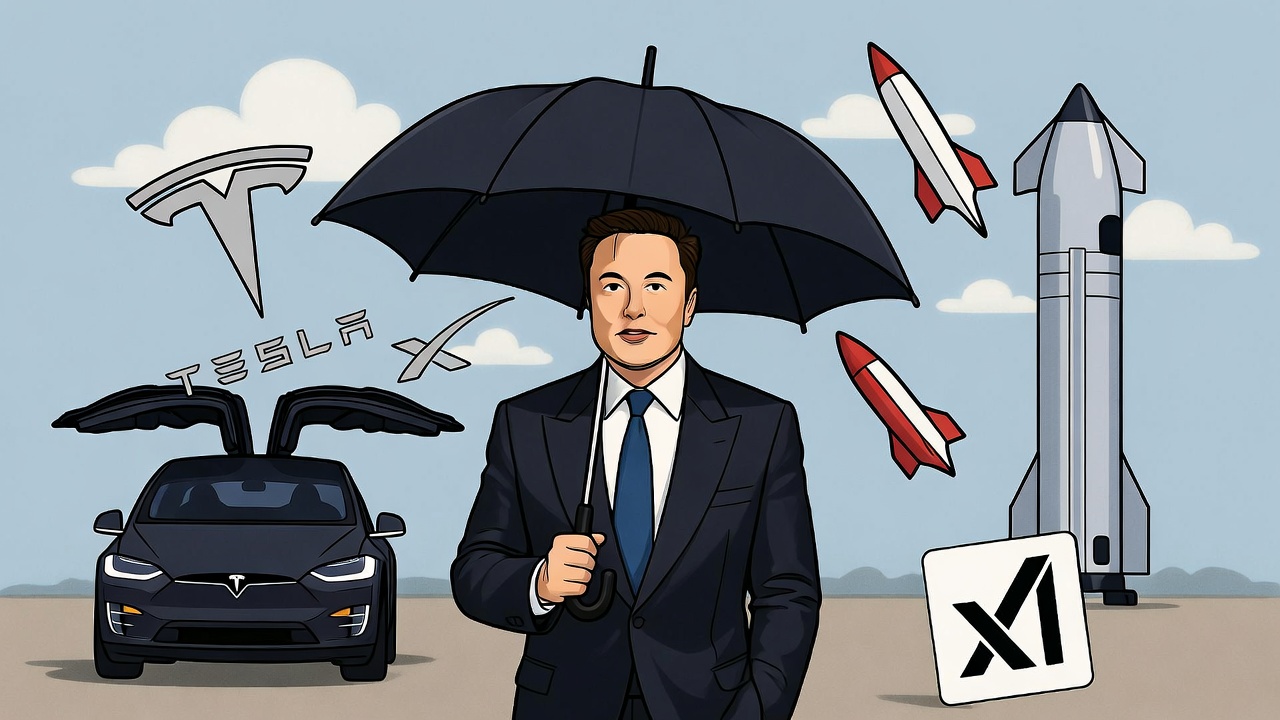
With the news of a merger between SpaceX and xAI being confirmed earlier this week by CEO Elon Musk directly, the first moves of an umbrella company that combines all of the serial tech entrepreneur’s companies have been established.
The move aims to combine SpaceX’s prowess in launches with xAI’s expanding vision in artificial intelligence, as Musk has detailed the need for space-based data centers that will require massive amounts of energy to operate.
It has always been in the plans to bring Musk’s companies together under one umbrella.
“My companies are, surprisingly in some ways, trending toward convergence,” Musk said in November. With SpaceX and xAI moving together, many are questioning when Tesla will be next. Analysts believe it is a no-brainer.
SpaceX officially acquires xAI, merging rockets with AI expertise
Dan Ives of Wedbush wrote in a note earlier this week that there is a “growing chance” Tesla could be merged in some form with the new conglomeration over the next 12 to 18 months.
“In our view, there is a growing chance that Tesla will eventually be merged in some form into SpaceX/xAI over time. The viewis this growing AI ecosystem will focus on Space and Earth together… and Musk will look to combine forces,” Ives said.
Let’s take a look at the potential.
The Case for Synergies – Building the Ultimate AI Ecosystem
A triple merger would create a unified “Musk Trinity,” blending Tesla’s physical AI with Robotaxi, Optimus, and Full Self-Driving, SpaceX’s orbital infrastructure through Starlink and potential space-based computer, and xAI’s advanced models, including Grok.
This could accelerate real-world AI applications, more specifically, ones like using satellite networks for global autonomy, or even powering massive training through solar-optimized orbital data centers.
The FCC welcomes and now seeks comment on the SpaceX application for Orbital Data Centers.
The proposed system would serve as a first step towards becoming a Kardashev II-level civilization and serve other purposes, according to the applicant. pic.twitter.com/TDnUPuz9w7
— Brendan Carr (@BrendanCarrFCC) February 4, 2026
This would position the entity, which could ultimately be labeled “X,” as a leader in multiplanetary AI-native tech.
It would impact every level of Musk’s AI-based vision for the future, from passenger use to complex AI training models.
Financial and Structural Incentives — and Risks
xAI’s high cash burn rate is now backed by SpaceX’s massive valuation boost, and Tesla joining the merger would help the company gain access to private funding channels, avoiding dilution in a public-heavy structure.
The deal makes sense from a capital standpoint, as it is an advantage for each company in its own specific way, addressing specific needs.
Because xAI is spending money at an accelerating rate due to its massive compute needs, SpaceX provides a bit of a “lifeline” by redirecting its growing cash flows toward AI ambitions without the need for constant external fundraising.
Additionally, Tesla’s recent $2 billion investment in xAI also ties in, as its own heavy CapEx for Dojo supercomputers, Robotaxis, and Optimus could potentially be streamlined.
Musk’s stake in Tesla and SpaceX, after the xAI merger, is also uneven. His ownership in Tesla equates to about 13 percent, only increasing as he achieves each tranche of his most recent compensation package. Meanwhile, he owns about 43 percent of the private SpaceX.
A triple merger between the three companies could boost his ownership in the combined entity to around 26 percent. This would give Musk what he wants: stronger voting power and alignment across his ventures.
It could also be a potential facilitator in private-to-public transitions, as a reverse merger structure to take SpaceX public indirectly via Tesla could be used. This avoids any IPO scrutiny while accessing the public markets’ liquidity.
Timeline and Triggers for a Public Announcement
As previously mentioned, Ives believes a 12-18 month timeline is realistic, fueled by Musk’s repeated hints at convergence between his three companies. Additionally, the recent xAI investment by Tesla only points toward the increased potential for a conglomeration.
Of course, there is speculation that the merger could happen in the shorter term, before June 30 of this year, which is a legitimate possibility. While this possibility exists but remains at low probability, especially when driven by rapid AI/space momentum, longer horizons, like 2027 or later, allow for key milestones like Tesla’s Robotaxi rollout and Cybercab ramp-up, Optimus scaling, or regulatory clarity under a favorable administration.
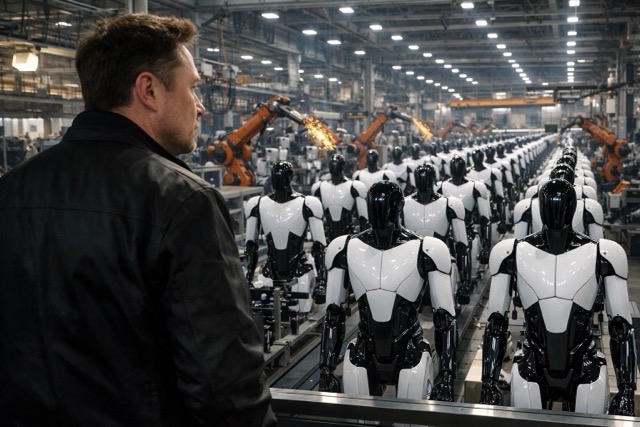
Credit: Grok Imagine
The sequencing matters: SpaceX-xAI merger as “step one” toward a unified stack, with a potential SpaceX IPO setting a valuation benchmark before any Tesla tie-up.
Full triple convergence could follow if synergies prove out.
Prediction markets are also a reasonable thing to look at, just to get an idea of where people are putting their money. Polymarket, for example, sits at between a 12 and 24 percent chance that a Tesla-SpaceX merger is officially announced before June 30, 2026.
Looking Ahead
The SpaceX-xAI merger is not your typical corporate shuffle. Instead, it’s the clearest signal yet that Musk is architecting a unified “Muskonomy” where AI, space infrastructure, and real-world robotics converge to solve humanity’s biggest challenges.
Yet the path is fraught with execution risks that could turn this visionary upside into a major value trap. Valuation mismatches remain at the forefront of this skepticism: Tesla’s public multiples are unlike any company ever, with many believing they are “stretched.” On the other hand, SpaceX-xAI’s private “marked-to-muth” pricing hinges on unproven synergies and lofty projects, especially orbital data centers and all of the things Musk and Co. will have to figure out along the way.
Ultimately, the entire thing relies on a high-conviction bet on Musk’s ability to execute at scale. The bullish case is transformative: a vertically integrated AI-space-robotics giant accelerates humanity toward abundance and multi-planetary civilization faster than any siloed company could.








